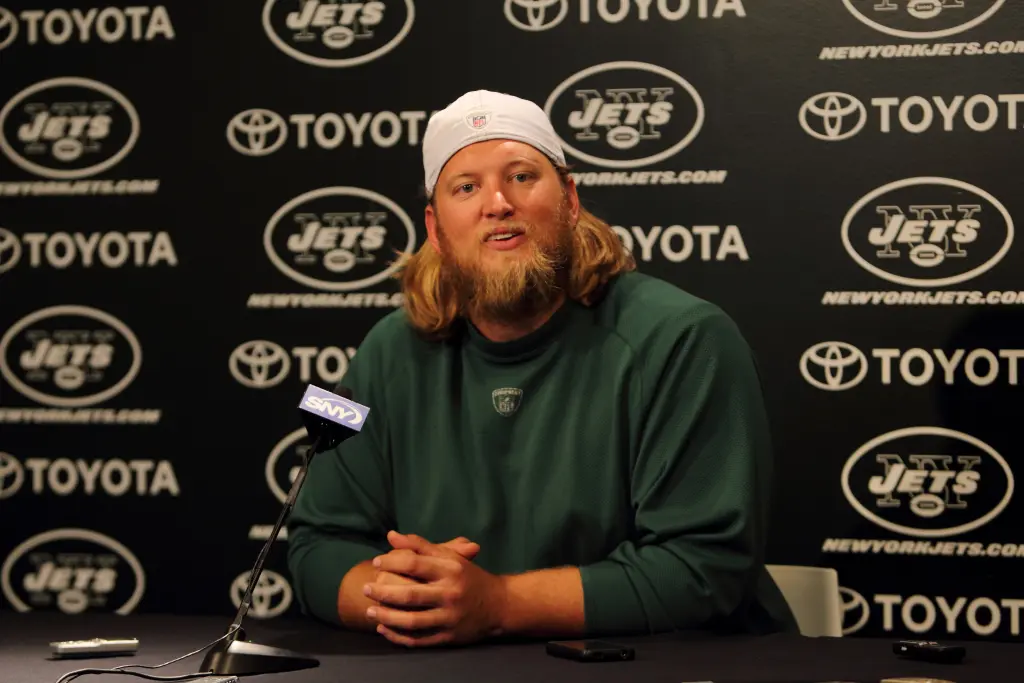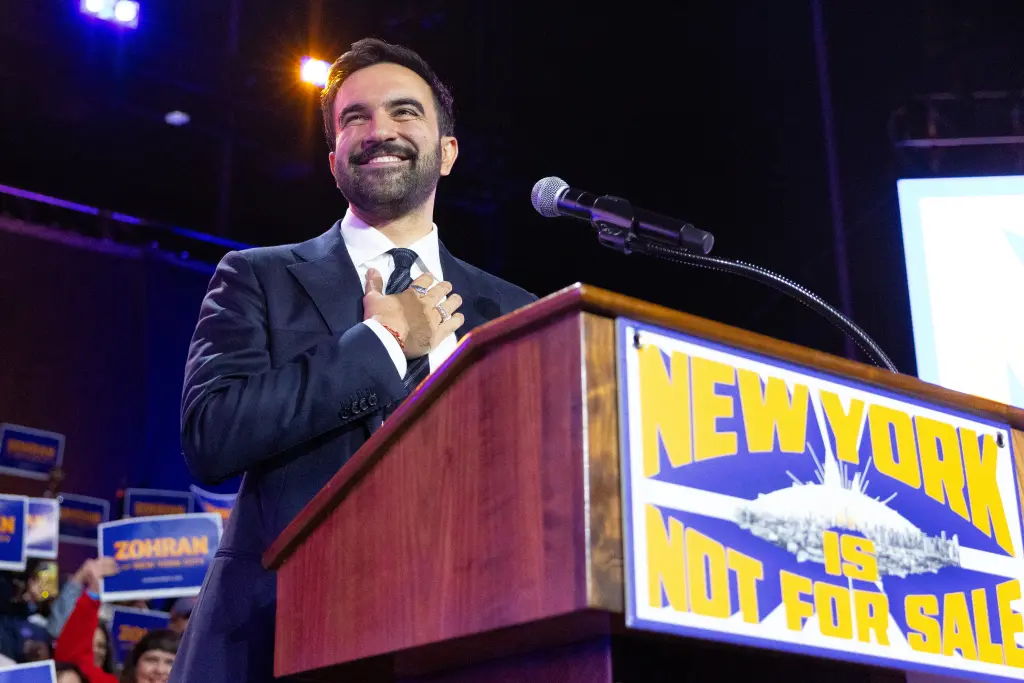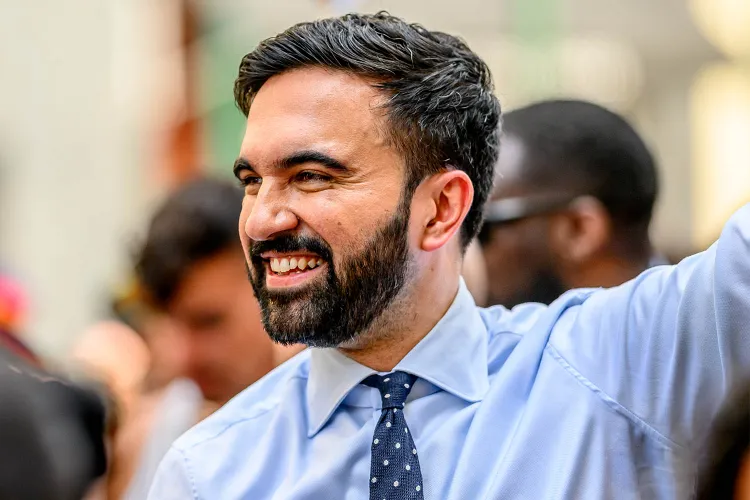Nick Mangold’s heartbreaking final interview two weeks before his untimely death at age 41
On October 25, 2025, the football world lost one of its most beloved and respected players when former Nick Mangold passed away at the age of 41, following complications from chronic kidney disease. Just twelve days earlier, on October 14, Mangold had given what would become his final interview, opening up about his long-fought health battle and his urgent search for a kidney donor.
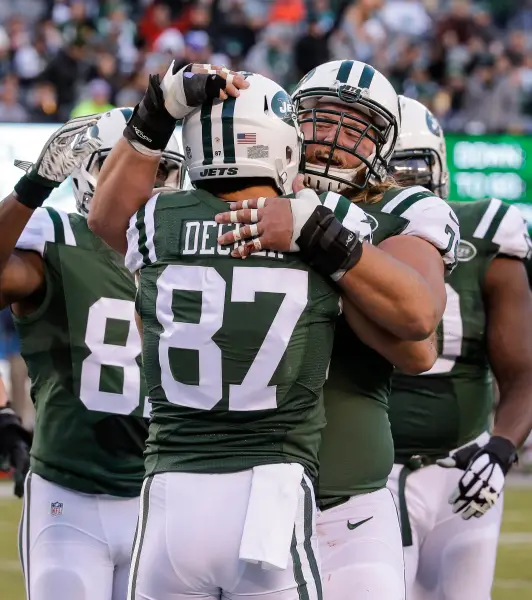
In that vulnerable conversation, Mangold spoke with raw honesty about a genetic defect he’d carried since 2006, one that had quietly eroded his health over the years until this summer when dialysis became part of his daily routine. He admitted the blow had come earlier than he expected: “I assumed I’d be like 60 or so before it came up,” he said. “But it’s reared its ugly head now, sooner than I thought it would.”
What makes the moment even more poignant is how Mangold had tied his identity—as a football player, father, husband, teammate—to the notion of time. In his mind, there was time for more games to watch, more breakfasts with his kids, more steps in the life he’d built post-NFL. His public plea for a donor wasn’t just about extending that life, but about honoring the playing field he never walked away from. “I have a direct path, I just need to go on that path,” he told the interviewer.
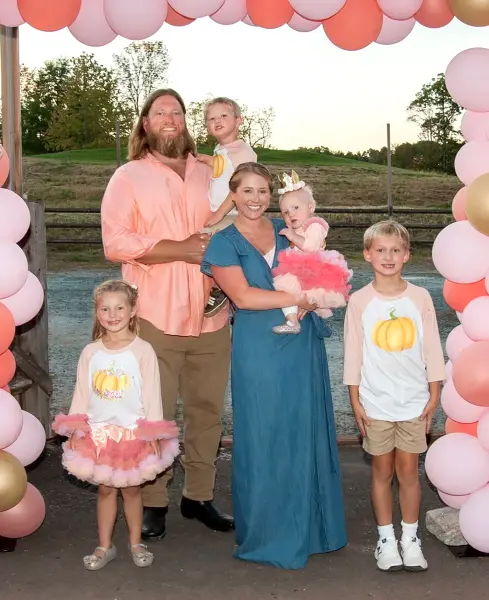
His appeal resonated far beyond the locker rooms of the New York Jets and the grandstands of his alma-mater Ohio State Buckeyes—it was a call to humanity. It became a story not only about one man’s fight, but about a community that rallies when its heroes say they need help. Within days, tributes and donor offers began to flood social media. Yet the twist of fate is that even with that support and visibility, time simply ran out.
Mangold’s career was a study in consistency, hard work, and leadership. Drafted in the first round in 2006, he spent his entire NFL career anchoring the Jets’ center position. He earned seven Pro Bowl selections, two first-team All-Pro honors, and helped build offensive lines that powered playoff runs and became the backbone of the franchise for a decade. Teammates described him as the “heartbeat” of the unit, and coaches pointed to his toughness and steady presence. One former head coach said of him: “Such a great young man—I remember it was obvious I was getting fired … and Mangold, injured, says ‘I’m playing this game.’”
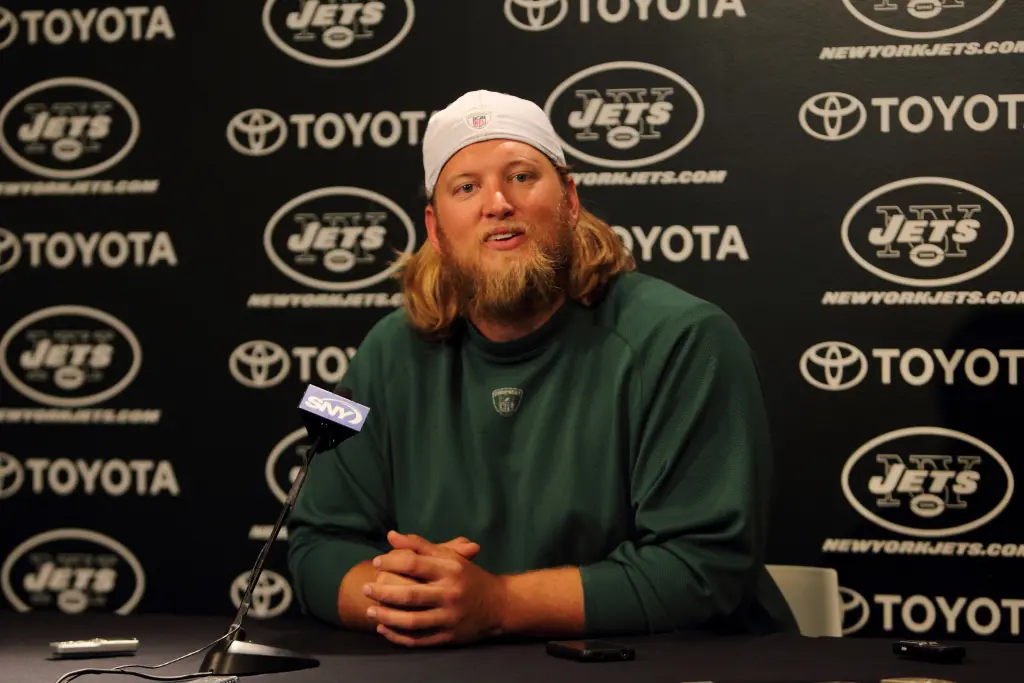
Off the field, he carried himself differently from some of the larger-than-life stars. He married his high school sweetheart, built a family with four children—Matthew, Eloise, Thomas, and Charlotte—and quietly poured himself into mentoring young athletes. After his playing days he settled near New Jersey, close to the world of the Jets and the community he’d represented for so long.
It’s impossible not to see in his final public message the collision of legacy and mortality: a man who’d grilled himself in the trenches of the NFL acknowledging that his body was failing. He wrote to the community he loved: “I always knew this day would come, but I thought I would have had more time.”
And that’s what hurts most. Because fans remember the strong blond-haired, beard-rocking center snapping balls to quarterback after quarterback, missing almost no games, the embodiment of reliability in a sport defined by change and injury. Now, they also remember him in a hospital bed, fighting dialysis, fighting for a kidney, and fighting for more time—not for trophies, but for simply being with his kids, his wife, his friends, his family.
We must hold onto that dual image: athlete and father, warrior and patient, hero and human being. Mangold’s numbers will go down in record books, but his last public days remind us of something deeper—of what happens behind the helmet, when the game ends and the next phase of life begins. He didn’t walk away quietly. He didn’t fade into a comfortable retirement. He stepped up and said: “Here I am, this is happening, and I want to give back.”
In a final sense, that’s the message. Not just about chronic kidney disease—though indeed many people will now learn about it because of him—but about courage, vulnerability, community, and the fact that none of us are invincible. Even the great ones.
So if you’re reading this and you’re healthy, living your life, take that breath. Do the check-ups. Make the calls. Let people know what you need. Because one day we’ll all run out of time. And if we’re lucky, there’ll be someone who heard us.
Farewell, Nick Mangold. You will forever be a Jet.
